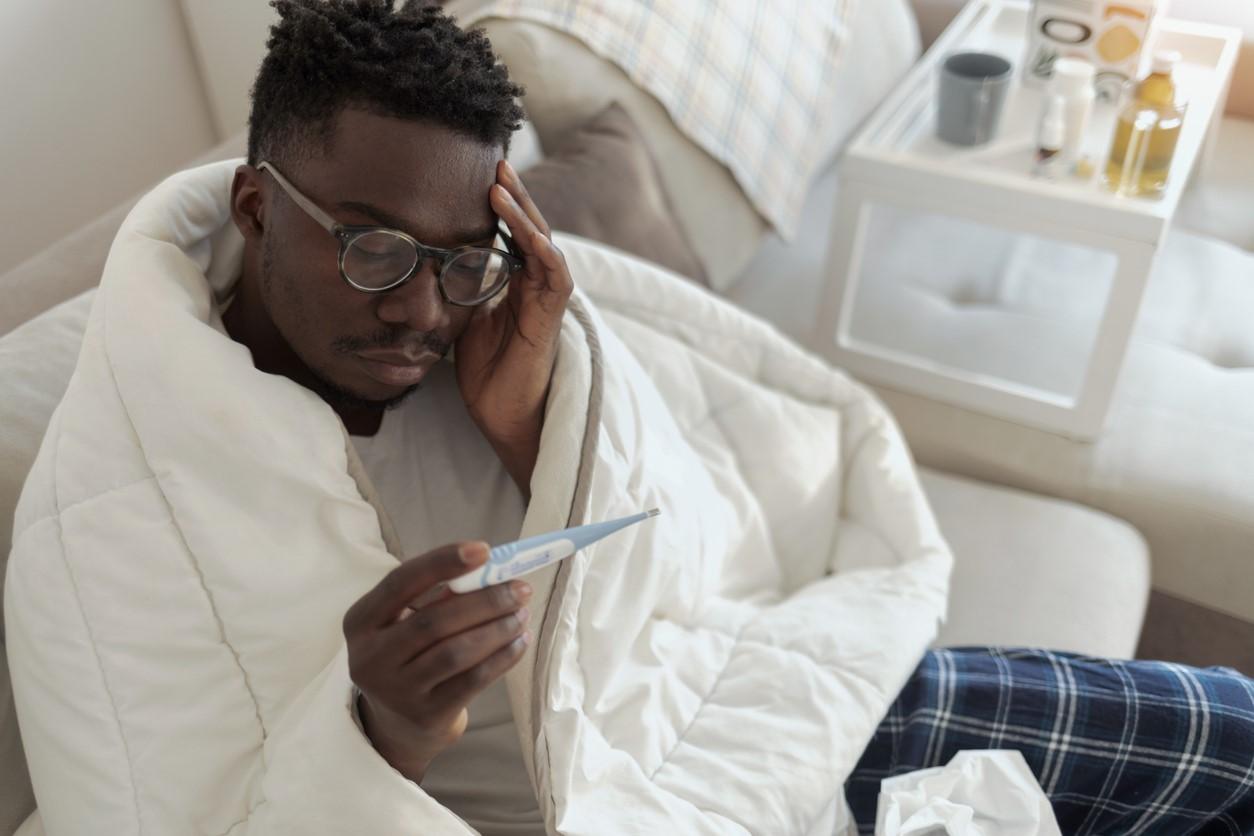The antidepressant fluvoxamine doesn't shorten the duration of COVID-19 symptoms in mildly to moderately ill adults, according to a randomized clinical trial (RCT) published yesterday in JAMA.
A team led by a Weill Cornell Medicine researcher randomly assigned 1,288 symptomatic adult outpatients to receive either 50 milligrams (mg) of the selective serotonin reuptake inhibitor (SSRI) fluvoxamine twice daily for 10 days or a placebo. The study spanned the predominance of the Delta and Omicron SARS-CoV-2 variants.
The study was part of the ongoing Accelerating COVID-19 Therapeutic Interventions and Vaccines (ACTIV-6) platform RCT, which tests repurposed drugs in outpatients with mild to moderate illness. Participants 30 years or older who had at least two COVID-19 symptoms for no more than 7 days were enrolled from Aug 6, 2021, to May 27, 2022, at 91 US sites.
Median participant age was 47 years, 57% were women, 36.4% were obese, 24.4% had high blood pressure, 13.2% had asthma, 9.2% had diabetes, and 67% reported receiving at least two COVID-19 vaccine doses. Of the 1,288 participants, 674 received fluvoxamine, and 614 received a placebo.
Outcomes similar in both groups
The median time to sustained recovery (at least 3 consecutive symptom-free days) was 12 days in the fluvoxamine group and 13 days in placebo recipients (hazard ratio [HR], 0.96; 95% credible interval [CI], 0.86 to 1.06), with a posterior probability of 0.21 for probability of benefit, much lower than the specified threshold of greater than 0.95.
Twenty-six fluvoxamine recipients (3.9%) were hospitalized, visited an urgent care center or emergency department, or died by 28 days, compared with 23 placebo recipients (3.8%) (HR, 1.1; 95% CI, 0.5 to 1.8), with a posterior probability of 0.35 for the probability of benefit. One participant in the fluvoxamine group and two participants in the placebo group were hospitalized. There were no deaths, and adverse events were uncommon.
"These findings do not support the use of fluvoxamine at this dose and duration in patients with mild to moderate COVID-19," the researchers wrote.
Team testing higher dose
In an interview with JAMA Deputy Editor Preeti Malani, MD, coauthor Susanna Naggie, MD, MHS, of Duke University, said that the team is testing a higher dose (100 mg) of fluvoxamine to ensure that the lack of benefit wasn't due to the low dose.
These findings do not support the use of fluvoxamine at this dose and duration in patients with mild to moderate COVID-19.
Naggie lauded the ability of scientists to rapidly marshal resources to better understand COVID-19 and to search for effective treatments against a novel virus. Now is a good time, she said, to ensure scientists can continue harnessing that energy for COVID-19 and future novel pathogens.
"Can you maintain that on a broader scale as you move forward in nonemergency situations?" she asked. "How do you maintain the infrastructure that's been developed and knowledge that now many sites have on doing these sorts of trials so that we can be more responsive when we move into the next pandemic?"
In a related commentary, Adarsh Bhimraj, MD, of Houston Methodist Hospital, and Jason Gallagher, PharmD, of Temple University, noted that ACTIV-6 and previous studies of fluvoxamine in patients with mild to moderate COVID-19 have produced disparate results.
"The differences in the results between the studies could be due to how the outcomes were defined, measured, or combined," they wrote. "COVID-19 has evolved to become a less severe disease, likely due to both changes in population immunity and circulating variants and could be a potential explanation why more recent studies like the ACTIV-6 trial did not show a benefit with use of fluvoxamine."
Bhimraj and Gallagher called for future clinical trials and observational studies that take into account the evolving nature of SARS-CoV-2 and evaluate more patient-centered outcomes such as discomfort, disability, and death.





















